The event, which was organised by group leader Prof. Laura Lechuga and counted on the participation of many members of the ICN2 community, aimed at bringing together researchers in the field of nanomedicine, clinicians from relevant hospitals, and healthcare industry experts to share results and views both on recent advances in the field and on effective procedures to transfer new technologies into clinical practice.
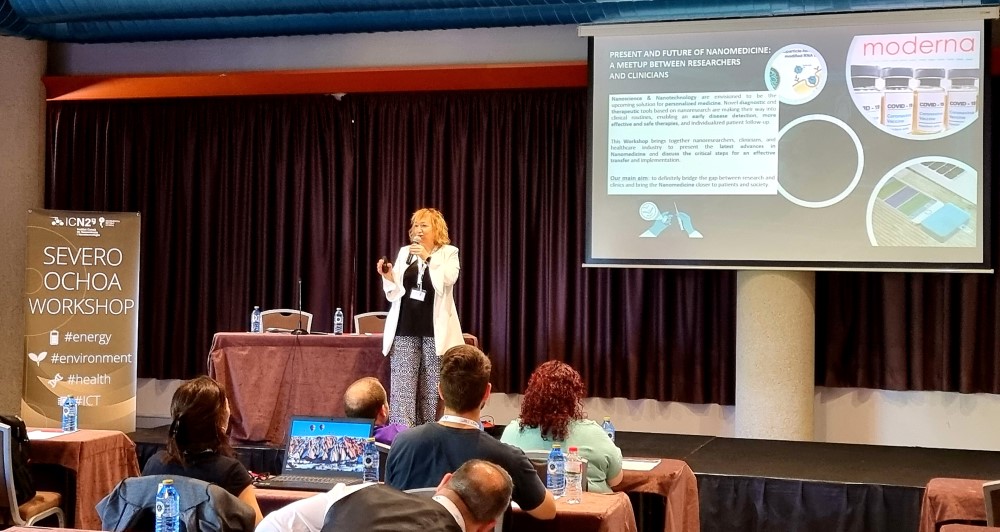
On 26 May 2022, a new ’Severo Ochoa Workshop’ on Health organised by Prof. Laura Lechuga, leader of the NanoBiosensors and Bioanalytical Applications Group, was held at ICN2. The discussion focused specifically on the present and future of nanomedicine, a branch of research that aims at providing new solutions for personalized medicine by taking advantage of progresses in nanoscience and nanotechnology. Novel diagnostic and therapeutic tools derived by research at the nanoscale, indeed, are emerging and progressively making their way into clinical and healthcare routines. They are expected to enable early disease detection and identification, more effective and safer therapies, as well as individualized patient follow-up.
The workshop brought together excellent researchers from the nano-community, eminent clinicians from relevant hospitals, and healthcare industry experts to present the latest advances in nanomedicine and discuss the critical steps for the effective transfer and implementation of new technologies into clinical practice. Specific strategies need to be conceived to bridge the gap between research laboratories and medical structures, to bring nanomedicine closer to patients and society.
The event, which is part of a series organised within the framework of the Spanish Excellence Severo Ochoa Programme, opened with a welcome message from Prof. Laura Lechuga and a plenary talk by Prof. Kostas Kostarelos, leader of the ICN2 Nanomedicine Lab, who reported on nanoscale engineering for cancer research. Then, a series of short presentations followed –among the speakers were ICREA Prof. Víctor Puntes, leader of the ICN2 Inorganic Nanoparticles Group, Dr Mary Cano, a researcher in the Supramolecular NanoChemistry and Materials Group, and Dr Giulio Rosati, from the Nanobioelectronics and Biosensors Group. The morning session concluded with a round table –chaired by Dr Maria Soler, a researcher in Prof. Lechuga’s group—, in which representatives of the three stakeholder categories (research institutes, hospitals and clinics, health industry) exchanged views about the clinical needs of future nanotechnologies.
In the afternoon, the workshop continued with a plenary talk by Dr Ibane Abasolo, from the Vall d'Hebron Institute of Research (VHIR), and another series of short presentations, given by Prof. Daniel Ruiz-Molina, leader of the Nanostructured Functional Materials Group, ICREA Prof. José Garrido, leader of the Advanced Electronic Materials and Devices Group, and Prof. Laura Lechuga.
Find more information here.
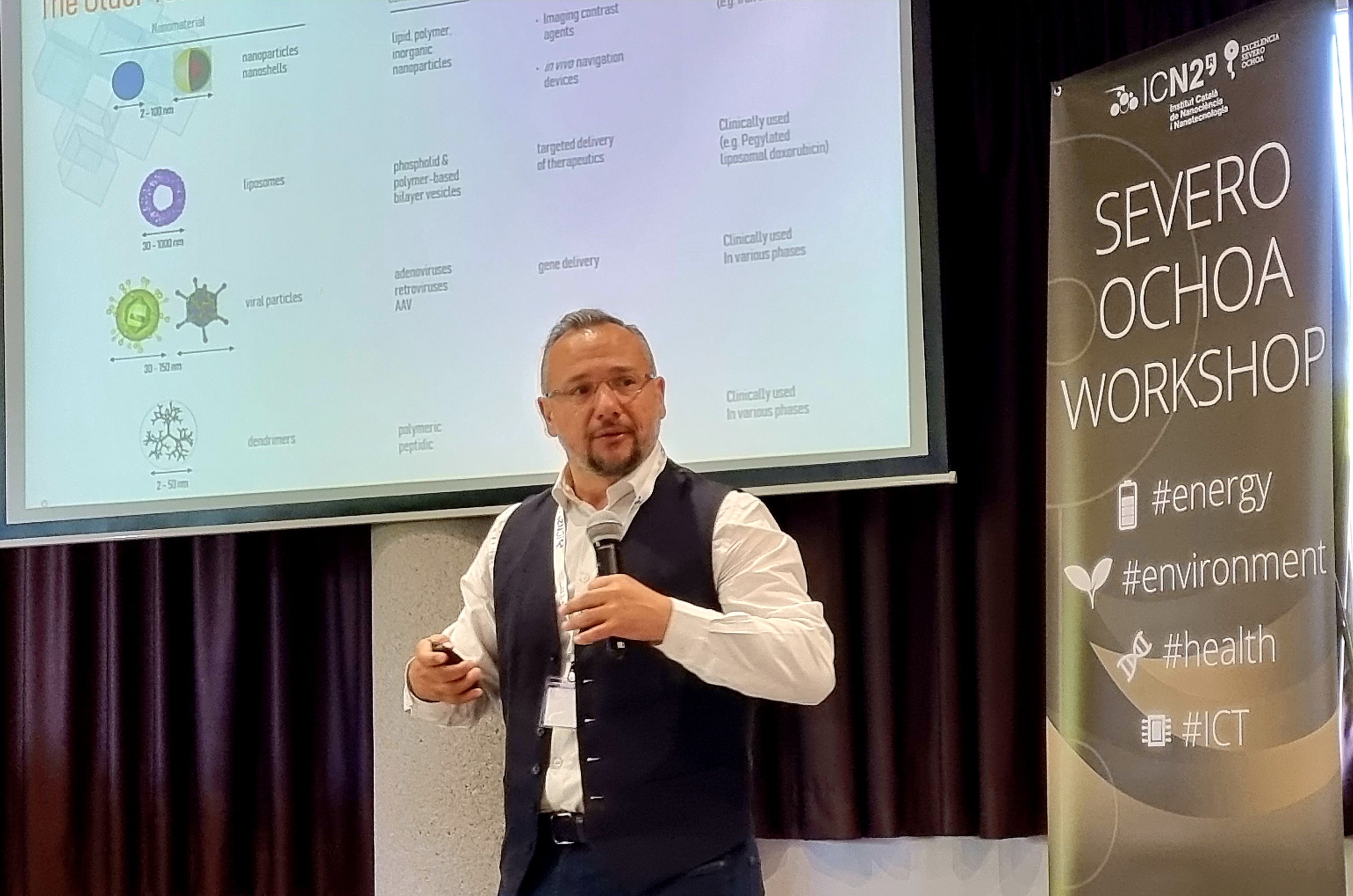 |
 |
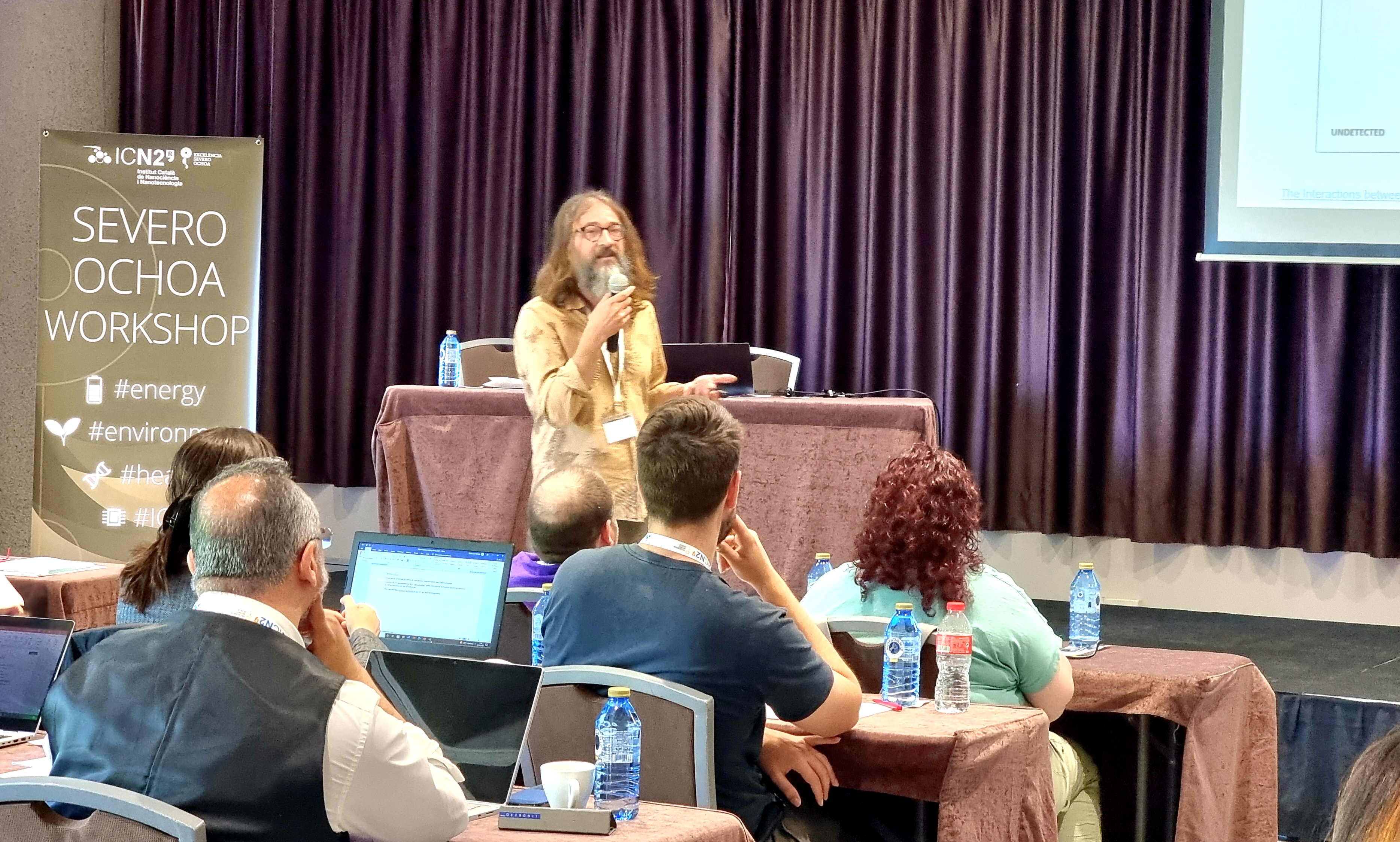 |
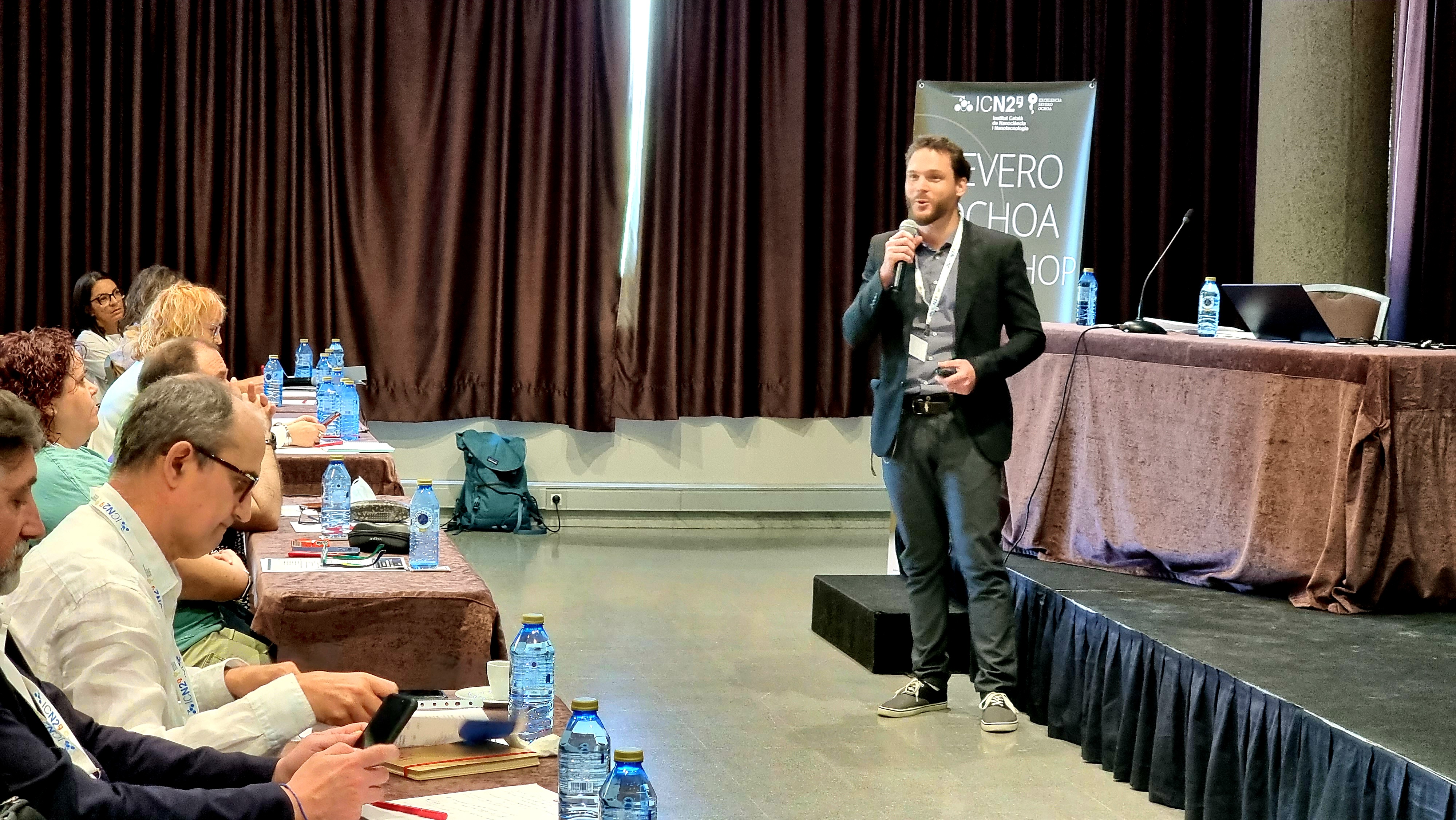 |
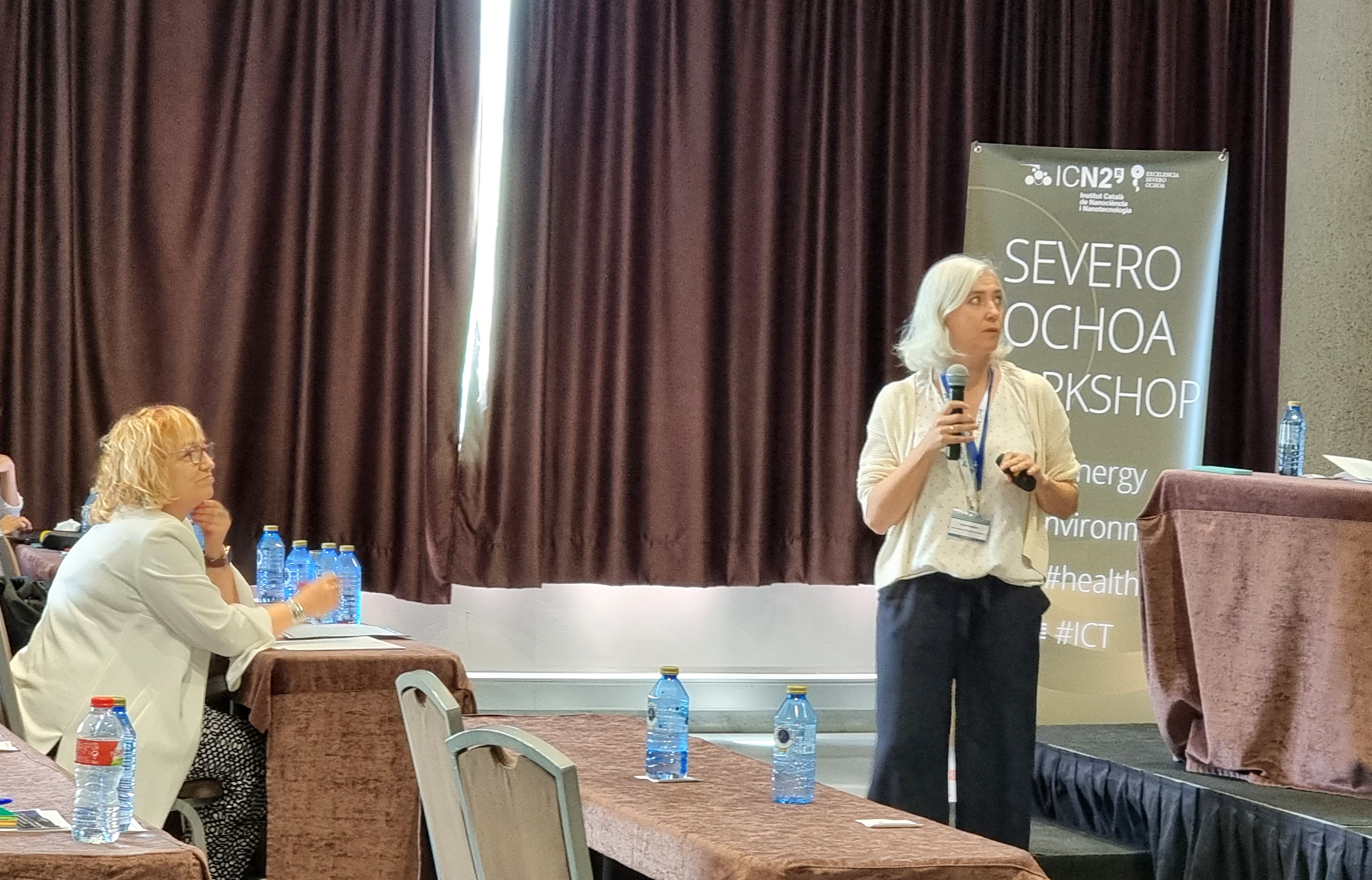 |
 |

